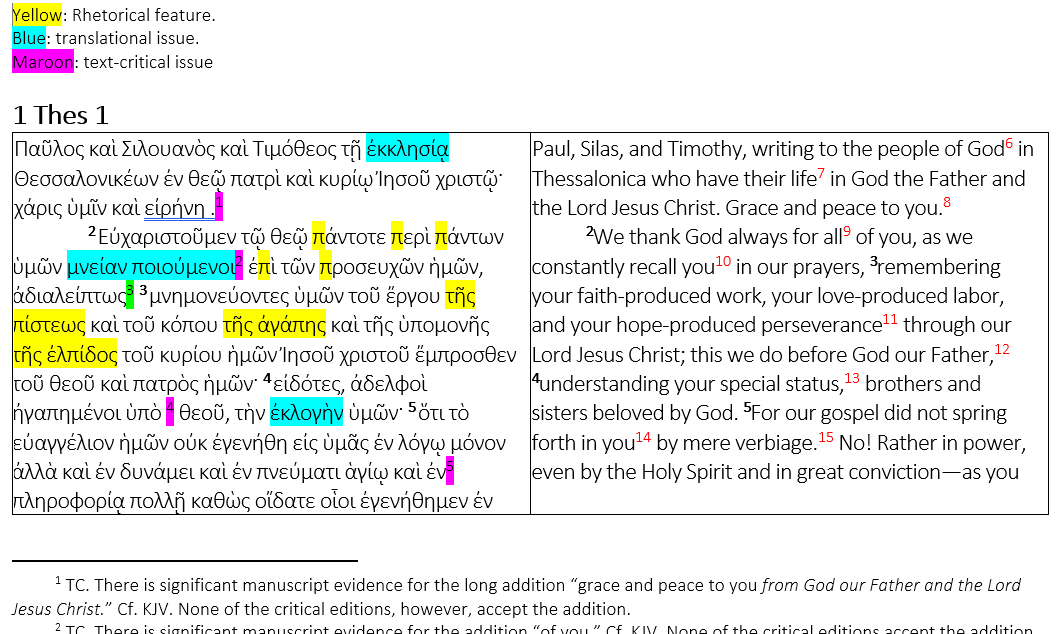FORMAL EQUIVALENCY, NOT.
When we study the Bible, we are attempting to determine the inspired author's intended meaning (which is the same as God's intended meaning).
When translators render the biblical language into English, their goal is to convey the intended meaning as fluently as practicable without sacrificing any aspect or nuance in the author's intended meaning (this is hard to do, but we try our best).
If rendering authorial intention is the goal, there is little reason to strive for syntactical equivalence. If there are seven words in the Greek, does it help you understand the text better if you use seven English words? No, of course not. And if the Greek uses δε to indicate the start of a new sentence, does adding "but" really help--I mean, after all, English has the period and a capital letter of the next word to signal a new sentence?
Don't believe the propaganda that formal equivalency makes a version more accurate. The best versions are those that accurately convey intended meaning in the most fluent way possible.






No comments:
Post a Comment